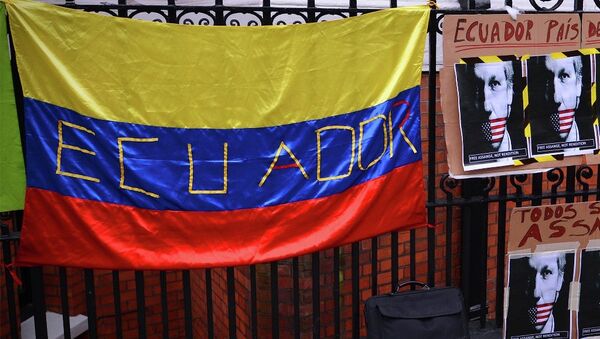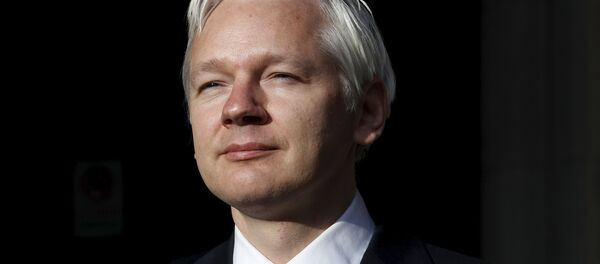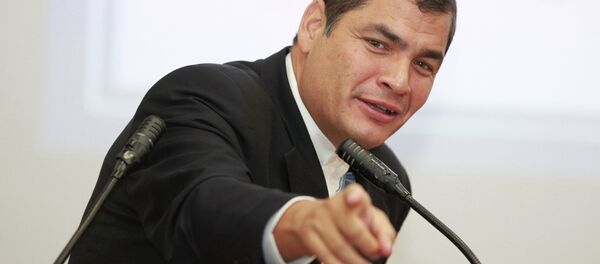To win the Ecuadorian election outright, a candidate needs at least 40 percent of the vote and at least 10 percent more of the vote than the next closest candidate. Moreno fulfilled the latter condition but not the former, receiving 39.21 percent of the vote to Lasso's 28.34 percent.
Moreno, who was Ecuador's vice-president from 2007-2013, and a nominee for the 2012 Nobel Peace Prize for his advocacy on behalf of disabled people, was announced as the chosen successor by incumbent President Rafael Correa. Both men are of the same party, the democratic socialist PAIS Alliance.
Lasso, a businessman with no political experience who received 22.7 percent of the vote in the 2013 election, runs on a center-right platform of job creation, drug prevention, educational freedom, and free trade. He wishes to lower taxes and foster foreign investments, and has spoken out against Ecuador housing Wikileaks-founder Julian Assange in the country's London embassy. Lasso has also rallied against the left-wing policies of Correa and Moreno, including the government's close ties with Venezuela, Cuba, and China.
Moreno has the blessing of Correa, who at one point enjoyed an 81-percent approval rating in Ecuador, in days that are long past. Accusations of corruption, rampant government spending, and authoritarianism have sunk his approval ratings to 42 percent. Moreno, a close associate of Correa's, carries the baggage of his predecessor.
Moreno's running mate Jorge Glas has been accused of corruption as well, particularly in a bribery scandal involving state oil company Petroecuador. Glas has denied the accusations.
Lasso is far from squeaky clean himself. Accused by his opponents of being an out-of-touch plutocrat with no understanding of politics, he is haunted by a 1999 banking crisis in which dozens of banks went out of business in quick succession, costing hundreds of thousands of Ecuadorians their savings and doubling unemployment.
The incident destroyed the trust of the Ecuadorian people in their financial and political institutions, opening the door to Correa's leftist policies. Lasso argues that his bank, Banco de Guayaquil, survived the meltdown and the charges of corruption levied against him are untrue.
Both candidates have sworn to fight corruption within Ecuador's government, and are confident that they will succeed Correa as president. "We're going to win the elections just like we won the first round," said Moreno in a Tuesday press conference.
Lasso is expected to see other right-wing candidates, such as Cynthia Viteri (who received 16.16 percent of the vote), rally around him. Ecuadorian pollsters expect a tight race in the second round.
South America has pivoted to more conservative candidates in the past few years. Argentina and Peru have elected center-right candidates in recent presidential elections. Brazil elected the leftist Dilma Rousseff in 2014, but she was impeached on corruption charges and replaced by right-wing vice president Michel Temer. Chile and Venezuela have elections upcoming this year.




